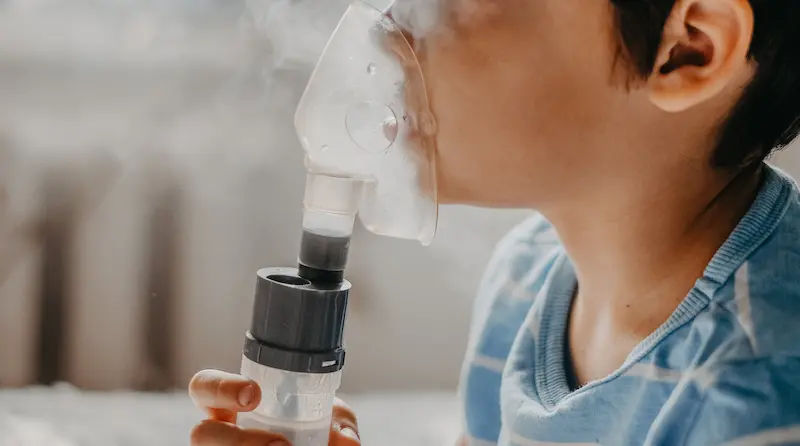Nasal Congestion: Causes and Effective Home Remedies
Learn about the causes of nasal congestion and explore effective home remedies to relieve a blocked nose, ease breathing, and improve comfort.


Introduction
Nasal congestion, that all-too-familiar feeling of a stuffed, blocked nose, is more than just a minor annoyance. It can disrupt your sleep, impair your sense of taste and smell, and make you feel generally miserable. While it's often a hallmark symptom of the common cold, the causes of a stuffy nose are surprisingly varied, ranging from allergies to environmental factors. The good news is that you don't always need to rush to the pharmacy for relief. This comprehensive guide will delve into the science behind what causes nasal congestion and arm you with a toolkit of effective, evidence-based home remedies to help you clear your nose and breathe freely again. We'll explore everything from simple hydration tricks to the proper use of neti pots, ensuring you have the knowledge to tackle congestion head-on.
What Exactly Is Nasal Congestion?
Often mistaken for an overabundance of mucus, nasal congestion is primarily caused by inflammation and swelling of the blood vessels in the membranes lining your nasal passages and sinuses. This swelling narrows the air passages, creating that characteristic "stuffed up" feeling, even if there isn't a significant amount of mucus present.
The Anatomy of a Blocked Nose: Turbinates and Blood Vessels
The inside of your nose isn't just an empty tunnel. It contains bony structures covered in soft, sensitive tissue called turbinates. Their job is to warm, humidify, and filter the air you breathe. These turbinates are rich in blood vessels. When triggered by an irritant like a virus or pollen, the immune system sends extra blood to the area. This causes the blood vessels to expand and the tissues to swell with fluid, leading to congestion. This inflammatory response is your body's way of trapping invaders, but it's also what causes the discomfort.
The Nasal Cycle: Is One Nostril Always More Blocked?
You may have noticed that nasal congestion often feels worse in one nostril. This is usually due to the "nasal cycle," a completely normal physiological process where your body alternates the workload between nostrils every few hours. One side does most of the breathing while the other rests, experiencing slightly increased swelling and reduced airflow. You typically don't notice it, but when you're already congested, this natural cycle can make one side feel completely blocked.
Consult an ENT Specialist for the best advice
Top Causes of Nasal Congestion: Why Your Nose Feels Blocked
Understanding the root cause is the first step to finding the right relief. Here are the most common culprits:
1. Viral Infections: The Common Cold and Flu
The most frequent cause, viruses trigger an immune response that leads to inflammation, swelling, and increased mucus production, the classic symptoms of a cold.
2. Allergic Rhinitis: Battling Allergens
When your immune system overreacts to allergens like pollen, dust mites, or pet dander, it releases histamine. This chemical causes rapid inflammation in the nasal passages, leading to congestion, sneezing, and itchy eyes.
3. Sinusitis: When Congestion Becomes an Infection
If inflammation blocks the sinus openings, mucus can become trapped, leading to a secondary bacterial or viral infection known as sinusitis. This causes intense facial pressure, pain, and thick, discolored nasal discharge.
4. Environmental Irritants and Structural Issues
Smoke, strong chemical fumes, and changes in weather or humidity can irritate the nasal passages. Additionally, structural problems like a deviated septum (where the wall between nostrils is crooked) or nasal polyps (noncancerous growths) can cause chronic nasal congestion.
Effective Home Remedies for Nasal Congestion Relief
Before reaching for medication, try these powerful and natural ways to clear your stuffy nose.
1. Hydration: The Simplest Solution
Staying well-hydrated by drinking water, herbal tea, or broth is crucial. Fluids help thin out thick mucus, allowing it to drain more easily from your sinuses. Avoid dehydrating beverages like alcohol and coffee, which can worsen swelling.
2. Steam Inhalation: Ancient and Effective
Inhaling warm, moist air is one of the most effective ways to instantly soothe swollen nasal tissues and loosen mucus. A hot shower works wonders, or you can simply lean over a bowl of hot water.
How to Do a Steam Inhalation Safely
Pour hot (not boiling) water into a large bowl. Place your face about 8-12 inches above the water, drape a towel over your head to create a tent, and breathe deeply through your nose for 5-10 minutes. Adding a few drops of eucalyptus or peppermint oil can provide extra decongestant benefits.
3. Saline Solutions: Nature's Decongestant
A saline (salt water) rinse is a cornerstone of sinus pressure relief. It helps flush out mucus, allergens, and irritants while reducing inflammation. It’s drug-free and safe for regular use.
Neti Pots and Saline Sprays: A How-To Guide
You can use a premixed saline spray or invest in a neti pot or squeeze bottle. How to use a neti pot correctly is key: use distilled, sterile, or previously boiled and cooled water. Tilt your head over a sink, insert the spout into your top nostril, and pour the solution through. It will drain out the other nostril. Repeat on the other side.
4. Warm Compresses and Elevation
Applying a warm, damp washcloth to your face several times a day can help relieve sinus pressure and pain. At night, prop your head up with an extra pillow. This uses gravity to help reduce nasal congestion and improve drainage while you sleep.
5. Spicy Foods and Warm Liquids
Foods containing capsaicin, like chili peppers, or horseradish can temporarily help break up mucus. Warm liquids like chicken soup not only provide hydration but the steam and anti-inflammatory properties can also offer significant relief.
6. Optimizing Your Environment: Humidifiers and Air Purifiers
Dry air, especially from heating systems, can irritate nasal passages. Using a cool-mist humidifier in your bedroom adds moisture to the air, easing congestion. An air purifier can remove allergens like pollen and dust, which is crucial for allergic rhinitis treatment at home.
Over-the-Counter (OTC) Options: When to Consider Them
If home remedies aren't enough, several OTC options can help:
Decongestants (e.g., pseudoephedrine): These provide relief by shrinking swollen blood vessels in the nasal tissues. Use them for only a few days to avoid rebound congestion.
Saline Nasal Sprays: As mentioned, these are a safe and gentle option for moisturizing dry passages and loosening mucus.
Antihistamines (e.g., diphenhydramine, loratadine): These are effective if your congestion is caused by allergies, as they block the histamine response.
When to See a Doctor: Recognizing Red Flags
While most cases of nasal congestion are minor, consult a doctor if you experience:
Symptoms lasting more than 10 days.
A high fever.
Thick green or yellow nasal discharge accompanied by sinus pain (potential sign of sinusitis).
Nasal discharge after a head injury.
Congestion that affects only one side or is accompanied by nosebleeds.
Conclusion: Breathe Easy Again
Nasal congestion, while frustrating, is usually a temporary condition that your body is well-equipped to handle. By understanding the causes, from the common cold to allergic rhinitis, you can choose the most targeted and effective remedies. The power of simple, at-home strategies like steam, saline irrigation, and proper hydration cannot be overstated. They are safe, effective, and provide immediate relief without the side effects of medication. Listen to your body, try these natural approaches, and remember that consistent care is key to clearing your passages. If your symptoms are severe or persistent, don't hesitate to seek professional medical advice to rule out underlying issues like chronic sinusitis. Here's to taking a deep, clear breath again!
Consult an ENT Specialist for the best advice
Consult an ENT Specialist for the best advice

Dr. Sourav Banerjee
Ent Specialist
5 Years • MBBS, MS (Otorihnolaryngology)
New Delhi
THE DOCTORS NESST, New Delhi

Dr. Krishan Rajbhar
Ent Specialist
8 Years • MBBS, MS(ENT), Fellowship in Neurotology Fellowship in Middle Ear Surgery & Cochlear Implant, Fellowship in Allergy & Asthma
Kolkata
Dr. Krishan Rajbhar's Clinic, Kolkata
(150+ Patients)

Dr. M Venkata Apparao
Ent Specialist
25 Years • MBBS MS
Visakhapatnam
Apparao ENT CLINIC, Visakhapatnam

Dr. Nirupama Reddy
Ent Specialist
5 Years • MBBS, MS (Oto Rhino Laryngology)
Hyderabad
Nirupama clinic, Hyderabad
Dr. Suresh Tarikere Laxman
Ent Specialist
26 Years • M.B.B.S , M.S, DIPLOMA IN THYROID & DIABETES
Bengaluru
Surya Ent Clinic, Bengaluru



